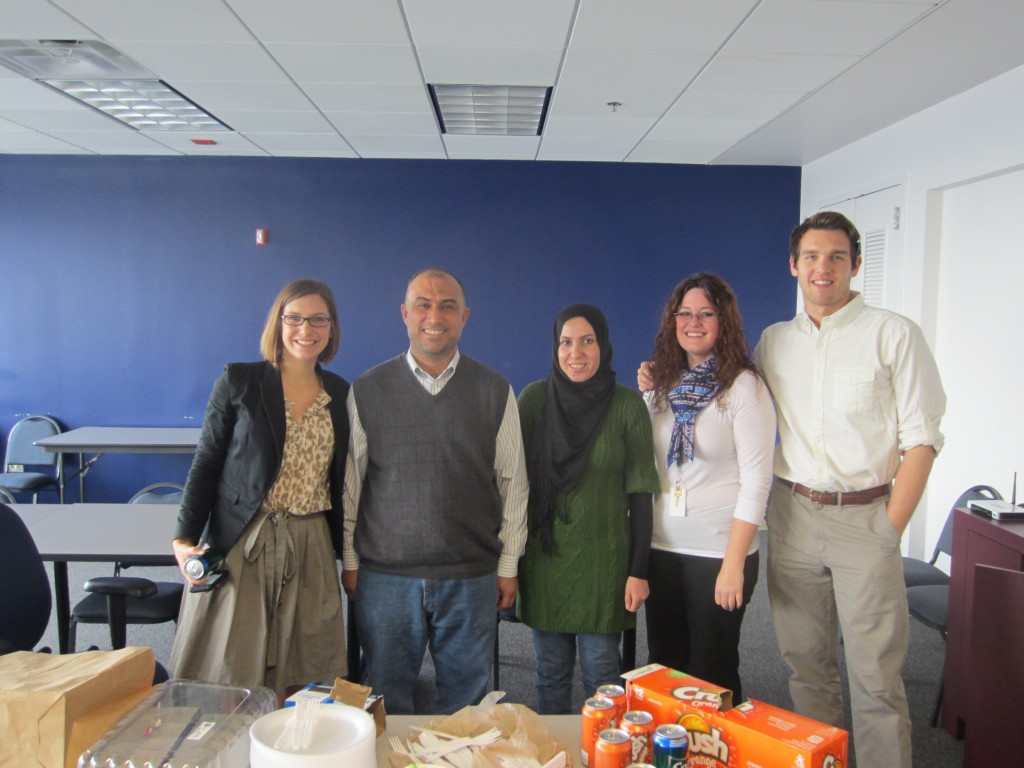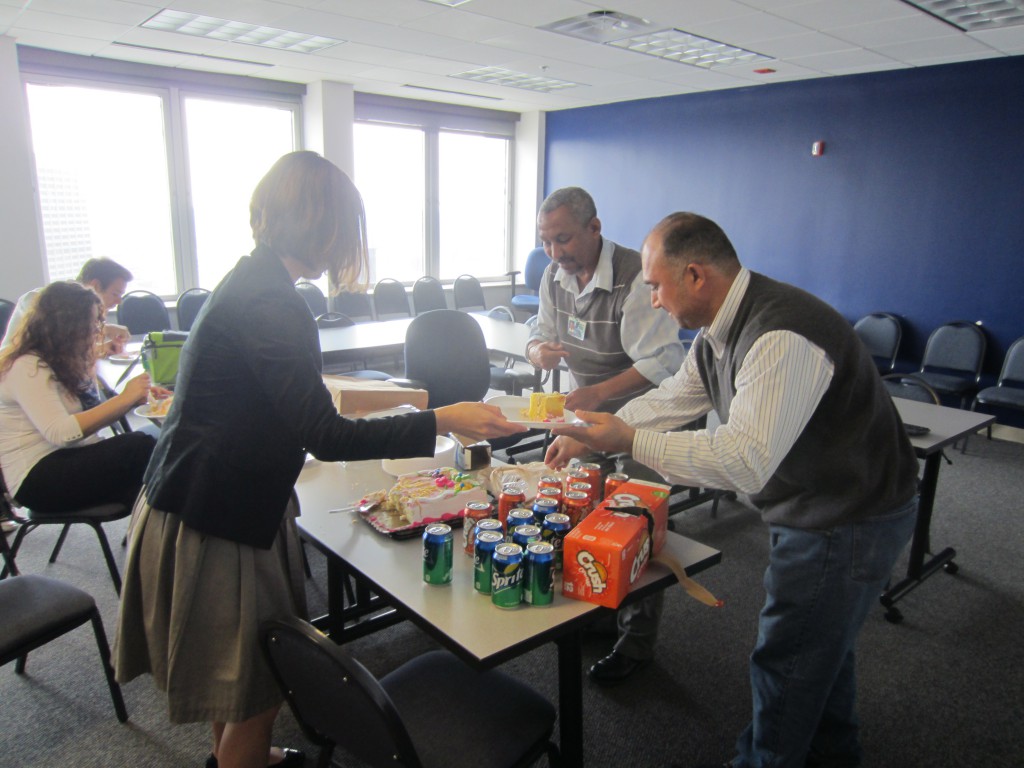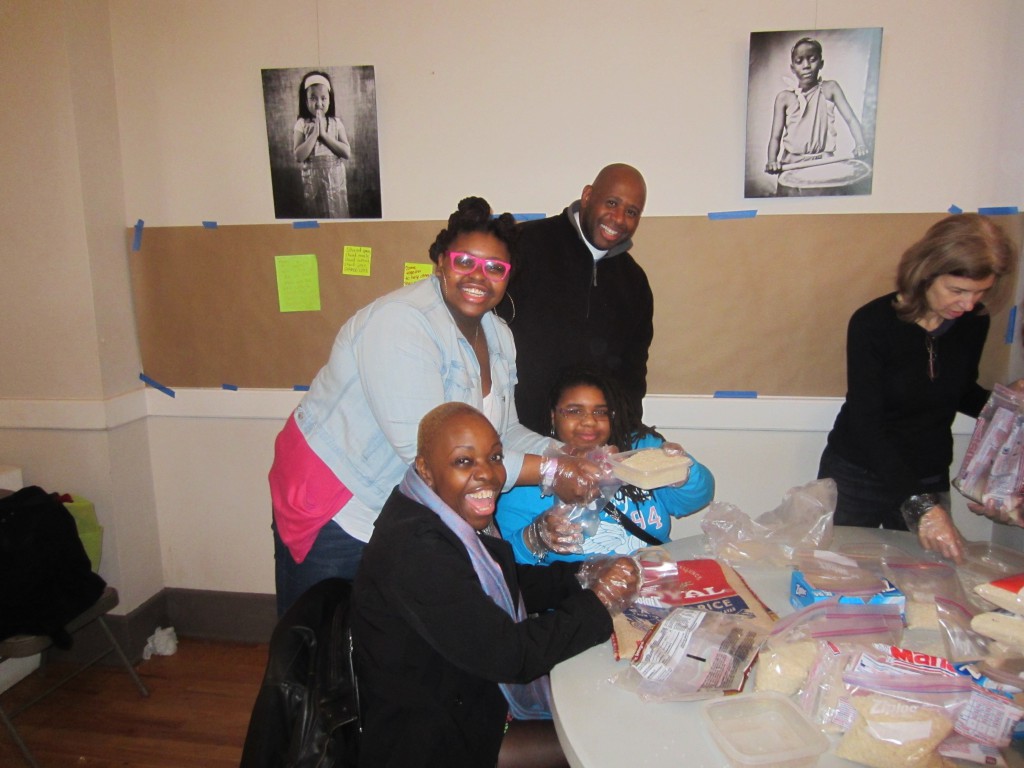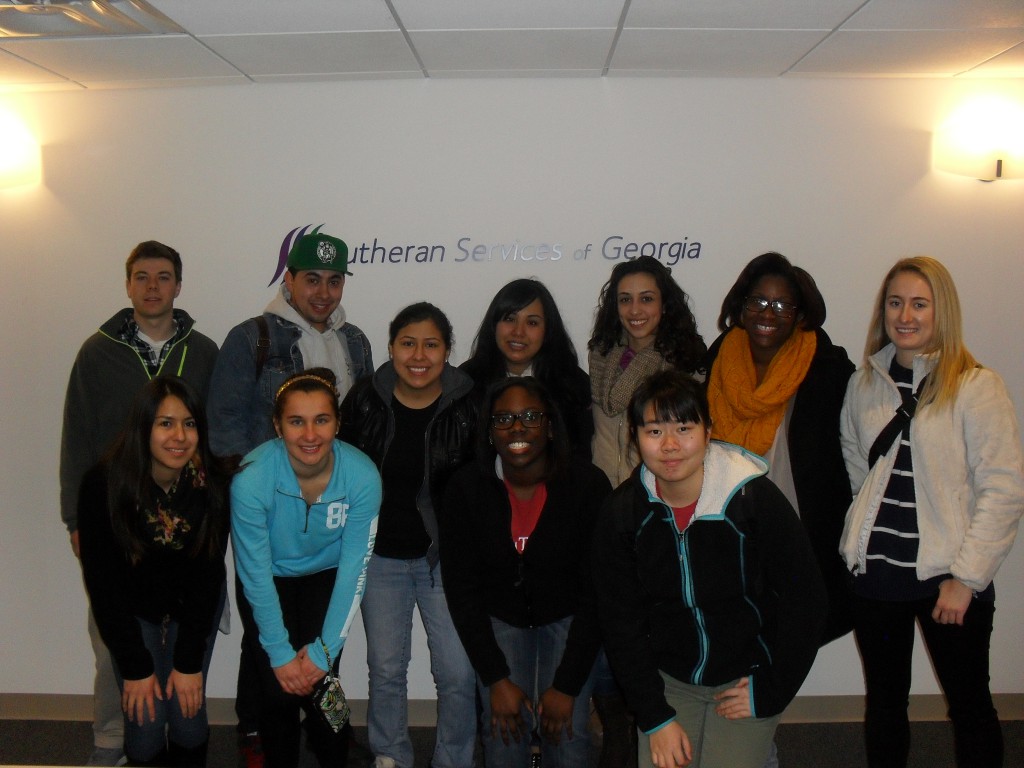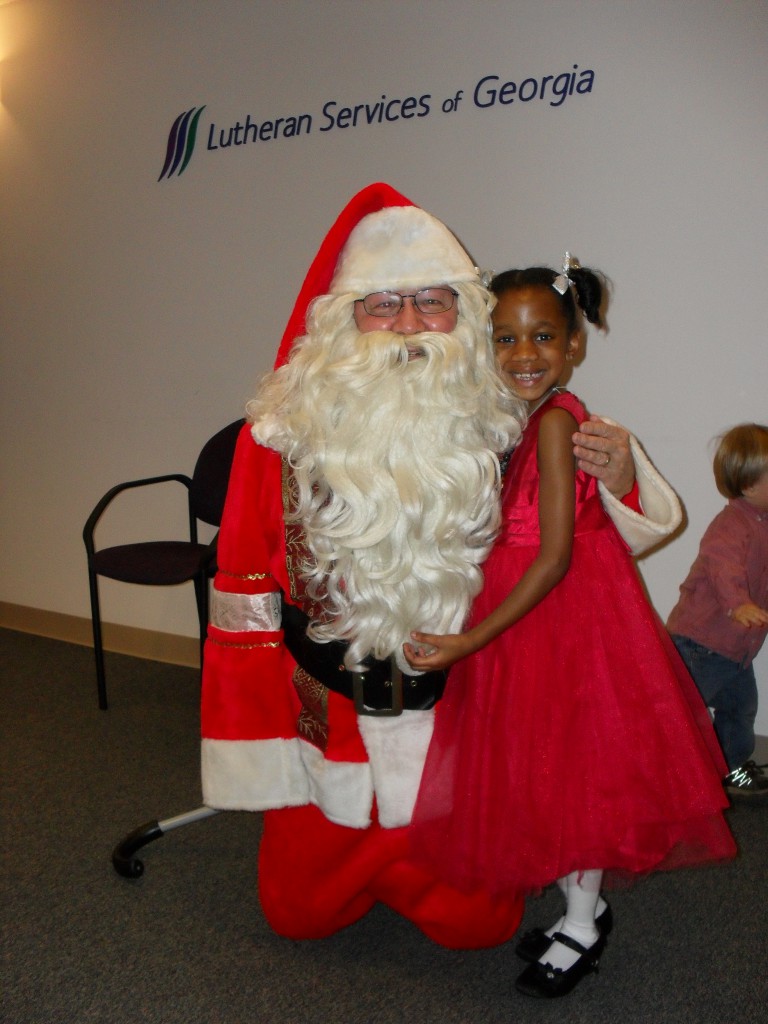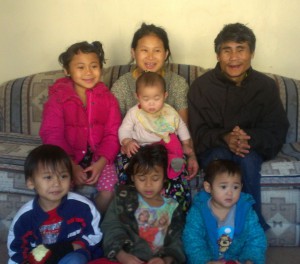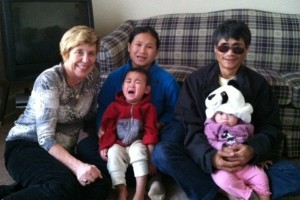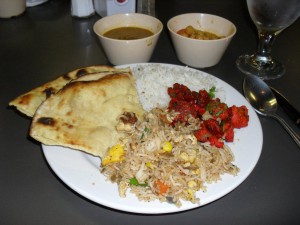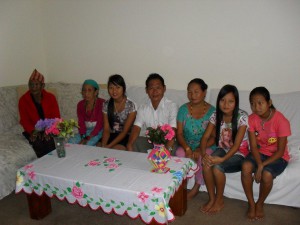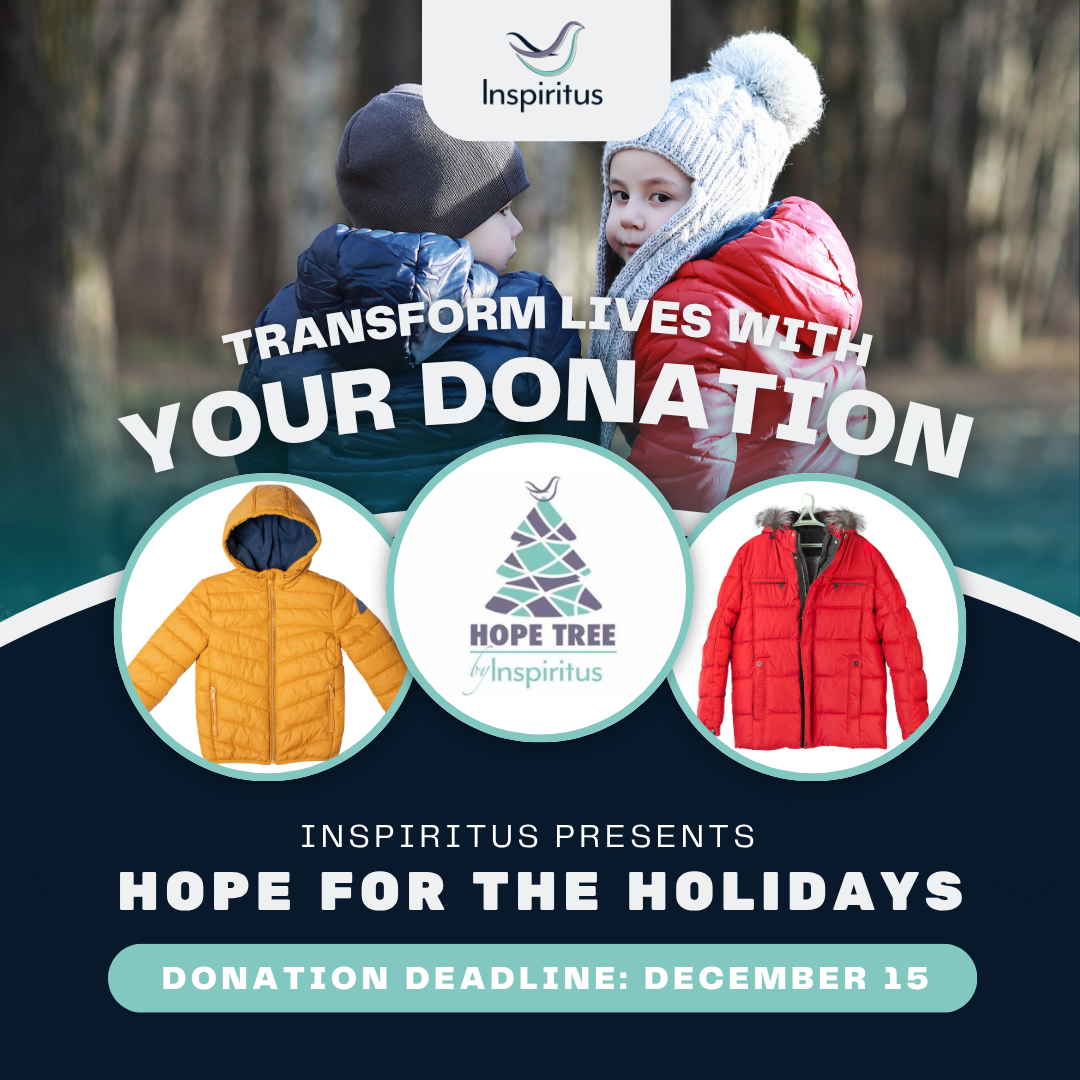“Keep on loving one another as brothers and sisters. Do not forget to show hospitality to strangers, for by so doing some people have shown hospitality to angels without knowing it. Continue to remember those in prison as if you were together with them in prison, and those who are mistreated as if you yourself were suffering.”- Hebrews 13:1-3
City folks call this the middle of nowhere. No hotels, no grocery chains, no department stores, no Starbucks, nowhere to go. This is Lumpkin, a rural town in Stewart County, the poorest county in Georgia. Yet to immigrants in the southeastern United States, Lumpkin is infamous. It is the home of the Stewart County Detention Center, the largest non-citizen detention center in the nation.
I am a volunteer with Friends in Hope, an initiative of Lutheran Services of Georgia (LSG) that coordinates visits between volunteers and Stewart detainees. This is my first time in Lumpkin. Getting to Lumpkin requires a three-hour drive from Atlanta through increasingly sparse land and into a town with almost no cell phone service. On this Saturday morning, the other LSG volunteers and I begin our day at El Refugio, a hospitality house for the friends and families of detainees. As Lumpkin has nowhere else for visitors to stay, El Refugio is truly a place of refuge. Weekends are especially busy at El Refugio, and the quaint, yellow house is full of life and chatter. While we eat lunch with the El Refugio volunteers, a Spanish-speaking mother and her children enter and ask to use the restroom. The water has been cut off at Stewart, leaving visitors without a place to relieve themselves. The El Refugio volunteers greet them warmly in Spanish, offering food, water, a place to refresh themselves, and an invitation to stay the night if they need. I watch in awe as El Refugio embodies borderless welcome and hospitality. At 12:45, we gather our things--passports or driver’s licenses, water bottles, and books--and drive the mile to the center.
Outside the Stewart Detention Center, the barbed-wire fence stretches in both directions. It is a wall not unlike that along our nation’s border or along the West Bank. The fence separates the citizen from the non-citizen, the free person from the detainee. It is constructed from the arbitrary differences and categories we use to separate us from those we see as other. Languishing inside Stewart are male detainees awaiting immigration proceedings with nothing but dwindling hope and the occasional visitor to keep them from despair. Of these men, 98.8% will be deported, cut off from the families, jobs, freedoms, and futures that drew them to the United States.
Although federal and state bodies distinguish between detention centers and prisons, detainees rarely experience this difference. Stewart County Detention Center is under the management of the Corrections Corporation of America (CCA), the nation’s largest private prison company. In 2010, CCA boasted an annual revenue of $1.7 billion (ACLU Georgia). As a for-profit, private corporation, CCA has cut corners without any real reprimands from the United States Immigration and Customs Enforcement (ICE). Georgia Detention Watch has documented instances of human rights violations in both of the CCA-operated detention centers in Georgia: North Georgia Detention Center and Stewart County. Even more disturbing is that CCA profits from detaining masses of people for long periods of time without honoring ICE detention standards. to the detainees and their communities, Stewart Detention Center is a prison.
We crowd into the tiny waiting room and timidly approach the security guard. I am surprised to learn that the visitor paperwork requires all visitors to list their immigration status. As I think of those unable to visit their families because they cannot answer this question without fear, I write “U.S. Citizen”, a label I have done nothing to earn. I was simply born in the right place at the right time. We hand our paperwork and photo identification to the guard, and the waiting begins.
The Stewart waiting room is far too small for the families and friends who spend hours waiting to visit loved ones. Visitors chat with each other, newcomers asking questions about what to expect. Even though CCA is contractually obligated to tailor its policies to visitors, visitors are often turned away for the slightest of offenses. If your child misbehaves in the waiting room, the guard may turn you away. If you wear a shirt without sleeves or forget to put on closed-toed shoes, the guard may turn you away. The guard refuses one of my companions because her underwire bra set off the metal detector. We cannot find anywhere to sit together, so we go outside to wait on the benches.
Hours pass. At 4:00 pm, we still have not been admitted to visit our detainees. The guard informs us that visitation hours end at four, but they will allow us in. They can only guarantee us 15 minutes. They make us feel as if they are doing us a huge favor. Along with the other visitors, I walk through the metal detector, silently praying the guards will not turn me away. An argument breaks out as one gentleman who was not with our group, frustrated with the process, makes a sardonic remark about CCA and the injustice of for-profit prisons. The guards respond without passion; they’ve heard it before.
My friend and I store our belongings in a locker and are ushered through the door, down a whitewashed hallway, and into a small visitation room. All visits at Stewart, including legal visits, are non-contact. Visitors must speak with detainees through glass plates by talking on a phone. There are five phone booths in the room, lined up in a row. Panic sets in when we realize we do not know the face of the detainee, so we choose an unoccupied booth, pick up the phone and ask, “Are you Alberto?*” We have chosen correctly.
As we converse, I am aware that anyone in the room could be listening. There is no privacy. I press the phone to my ear and listen as the man on the other side of the glass speaks. Alberto is expressive. He tells his story through words, but also through the raising of an eyebrow, the flash of a dimpled smile, the twinkle or tear in his eye. Even when I pass the phone to my friend, I cannot look away from his mesmerizing face. His story is one of sorrow, of isolation, of loneliness, and ultimately of strength. He tells of his love of poetry, of his family, and of a God who will always be with him. He gives love through the glass, affirming us and encouraging us in our own lives outside the center.
On Sunday morning, the following day, I listen to Anton Flores speak about love. As co-founder of the Alterna Community, a Christian community that offers “accompaniment, advocacy, and hospitality to Latin American immigrants,” Flores knows that real love always scales walls and cross borders. I sit with the congregation of Oakhurst Presbyterian and remember the families, friends, volunteers, and detainees that live out boundless love every day.
In Hebrews 13:1-3, Paul urges the Hebrews to practice borderless welcome and boundless love in the midst of persecution. I believe Paul’s words have special relevance for us today as we examine how we treat the strangers among us. At the heart of the world’s major religious traditions is a call to welcome the stranger, no matter her race, color, creed, or immigration status. We live in a nation where private corporations earn a profit from detaining the stranger and cutting him off from freedom. We live in a nation where the “foreigner” is more likely to encounter hateful speech than welcoming arms. We live in a nation where immigrants who have not committed violent crime are kept for months under prisonlike conditions, allowed only one visit per week and often denied access to adequate legal representation. Where is our holy rage?
Behind the barbed-wire fence, Alberto remains a fully-formed, flesh-and-blood human being capable of doing what human beings are meant to do--giving and receiving love. The combined forces of xenophobia, intolerance, and U.S. immigration law cannot erase his humanity no matter how they try. The walls of Stewart cannot stand in the way of shared humanity and of love that refuses to stay within our man-made borders.
As a person of faith, I encourage communities of faith throughout the United States to educate themselves about immigration and stand alongside the foreigner. I encourage you to travel to detention centers, to meet the people too often demonized as “other,” as “less than,” as “nonhuman”, as “illegal”. I encourage you to stand against those who would turn the stranger into someone to be feared rather than an opportunity to show God’s borderless hospitality. But most of all, I encourage you to “keeping on loving one another” with an unceasing love that knows no boundaries.
*Name has been changed for his protection.
Abby Koning is the community outreach coordinator for the ELCA Southeastern Synod.
 Over the holiday season, a generous donor gave her Dodge Durango to Lutheran Services of Georgia. Soon afterward, we found someone who could benefit from having his own means of transportation to and from work. Mohsin, an Iraqi man who recently came to the United States as a refugee, lives in Clarkston and works at a bakery in Norcross. With his new car, Mohsin will be able to get to work much more easily, and we're delighted that we could accommodate his need.
Over the holiday season, a generous donor gave her Dodge Durango to Lutheran Services of Georgia. Soon afterward, we found someone who could benefit from having his own means of transportation to and from work. Mohsin, an Iraqi man who recently came to the United States as a refugee, lives in Clarkston and works at a bakery in Norcross. With his new car, Mohsin will be able to get to work much more easily, and we're delighted that we could accommodate his need.

